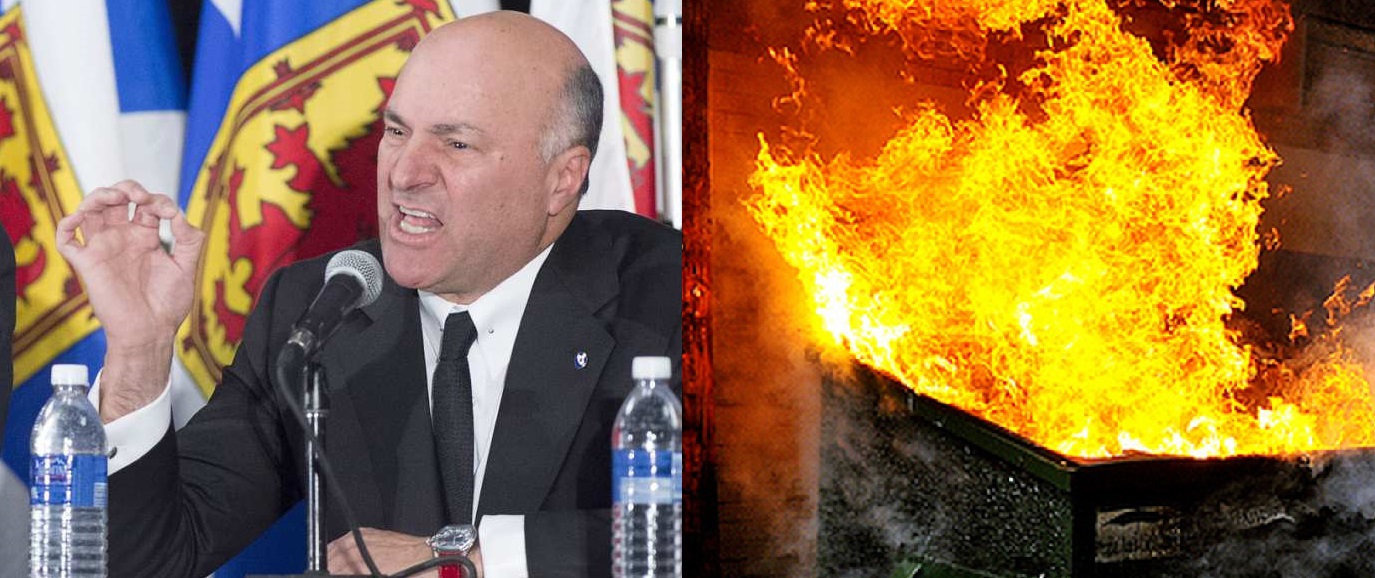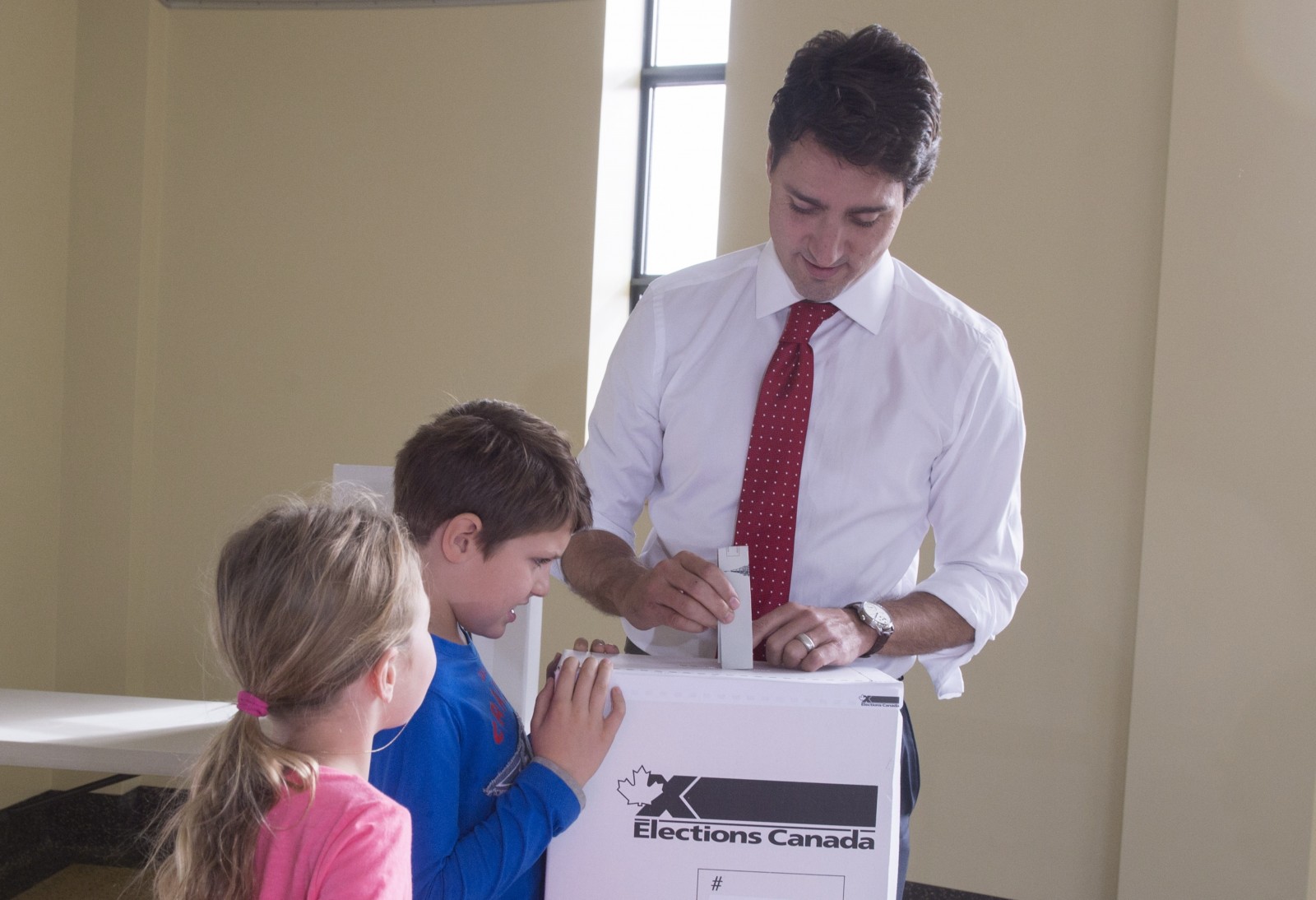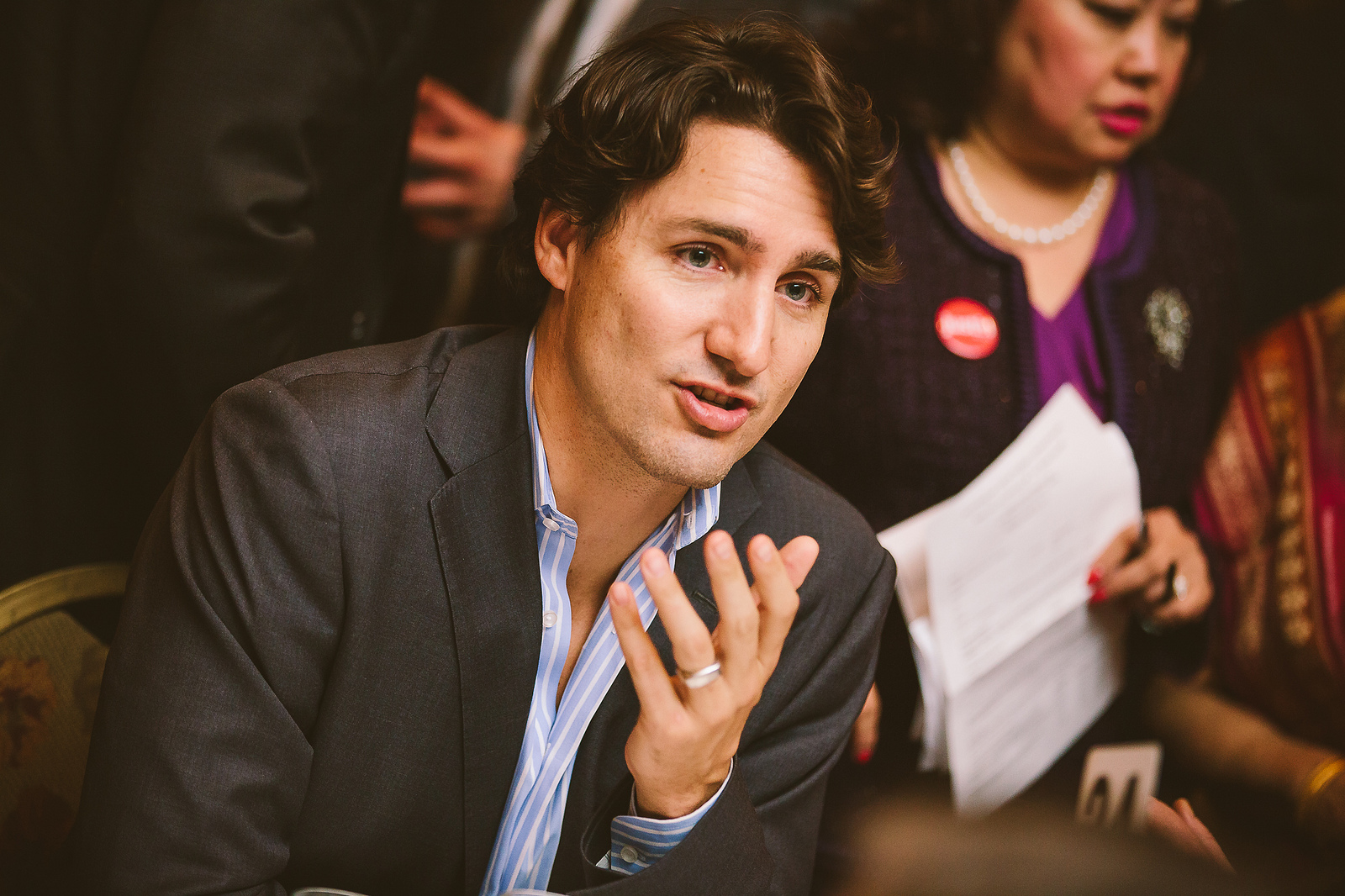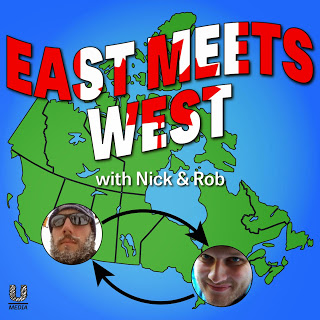Subscribe to the podcast at UnwindMedia.com/SeedsOfThought.
Tag: Politics
 A couple of examples of dumpster fires.
A couple of examples of dumpster fires.That Washington Post Story About Canadian Democracy
A couple of days ago, the Washington Post published an opinion piece about the actual state of democracy in Canadian government that I disagreed with. I didn’t have the knowledge or time to back that up in any kind of concrete way, but most of it just didn’t make any sense.
One day later, Drew Brown at Vice published a piece that directly responded to the opinion of J.J. McCullough, and I am hoping to point people to that piece, since it did such a great job of thoroughly and thoughtfully debunking almost every single thing I felt was wrong in the original letter.
I know in my heart that while Canadian government is not perfect (as Drew readily admits too), it takes a massively crooked perspective to twist words like J.J. does to make Justin Trudeau and his party seem like dictatorial despots.
Please go and read the Vice News piece: We Have Problems With that Washington Post Story About Canadian Democracy for some refreshingly neutral information on the strengths and weaknesses of the Canadian parliamentary system. It’s worth your time.
PS. I’m not going to get any timelier chance to use the image in the header again, so you’re welcome.

Actual examples of dumpster fires.  Image by: CKNW Radio
Image by: CKNW RadioThis is Some Bullshit: An Update on Canadian Electoral Reform
Last time we had a conversation about electoral reform on this site, it was in the fall of 2016. The post came in the aftermath of the publication of a report from an all-party Special Committee of the House of Commons that was specifically tasked with studying options for electoral reform in Canada.
This month, the Liberal Party published a new document in response to an official electoral reform petition submitted to the Government of Canada’s petition website. The response effectively summarizes and clarifies the justifications the Liberals are using in abandoning their campaign promise of electoral reform.
On the face of it, the current Liberal majority government might deserve a little credit for looking into electoral reform at all right after sweeping in to power in 2015. However, there are a few facts in that election that show exactly why the Canadian system needs to be reformed:
- While the Liberals did win a majority of seats in Parliament in the last election, all three left-leaning political parties are fundamentally pretty close. In this system, where a minority government is worse than useless, voters on the left tend to align en masse, to the detriment of the other left-leaning parties. In 2015, it was the Liberals that benefited from this.
- In the previous (2011) federal election, the NDP won a third (103/308) of the seats in Parliament, nearly tripling their seat count from 2008. In 2015, that seat total was back near where it started, at 44 seats. This comes from the aforementioned mass movement of voters (leaving Liberal and PQ in 2011, moving back to those parties in 2015) attempting to counter the unified Conservative voting block.
- Even though the Liberals did win a majority of seats in Parliament in 2015, the party only managed to win 39 percent of the vote, a clear sign of a broken system.
- Finally, the fact that this election was described as a ‘change’ election, and whether you believe that narrative or not, people did want changes to the political landscape, and that includes the way elected officials are chosen.
One of the main points of the Liberal response to electoral reform is the idea that in consultation with MPs, voting experts, and voters, no clear alternative to first-past-the-post presented itself. Therefore, the report concludes, the best option at present is to change nothing, as though a new clear alternative voting system will suddenly present itself at some point.
This is some bullshit.
Electoral systems are like climate science. They do not care if you believe in them. A good system doesn’t get your party into power unless you represent a majority of voters best. A bad electoral system may elect the best-suited party or candidate, or it may not. A key point here is that when the Liberals promised electoral reform, they didn’t promise to look in to other options for holding more representative elections. The party platform specifically promises that the 2015 election would be the last one held under first-past-the-post, and that a plan to do better would be presented to Parliament within 18 months of the election.
One of the biggest problems in politics today is that there is no motivation for a party not in power to present a clear policy alternative to the ruling party. The Liberals ran on ‘NOT first-past-the-post’, but never actually came up with anything to replace it. This is a clear sign the party didn’t want to reform the system, they just wanted to benefit from its flaws in the election.
Another example from the last year is the Republican-proposed American Health Care Act, which failed miserably even among hard-line conservative Republicans. This is because for at least 7 years, Republicans in the US House of Representatives ran and voted on ‘NOT Obamacare’, without spending much time (it seems) thinking about a health care system that actually stood a chance of passing through the Republican legislative branch.
One possible reason for this massive disconnect between parties in power and opposition parties is that an increasing amount of time in a politician’s day (especially one trying to get elected) is spent campaigning (fundraising). After becoming a member of the Liberal Party, I saw first hand just how many emails and phone calls active voters get encouraging them to donate as much money as possible to the Party.
These emails make it very clear that the goal is to ‘beat’ the Conservatives, but fails to make the link between money raised campaigning and actual changes in vote tallies. I have never contributed any money to a political campaign, because I have yet to be shown a good reason to do so, or even why campaigns raise money (other than to allow them to campaign even more).
Even campaign ads, on television or on lawn signs, don’t typically give reasons why voters should choose a given candidate, just that voters should vote for their preferred party, whoever the candidate is. Given massive fundraising totals, it does seem like this tactic works pretty well, though it isn’t very clear why.
It could be that parties have decided that the optimal strategy is to make any political opponents into nemeses, positioning them as enemies in the legislative battlefield. While this might work in a two-party system, positioning the NDP as a bad choice compared to the Liberals seems counterproductive at best. With multiple parties and several decent choices for small-L liberal voters in abundance in Canada (and elsewhere), it seems as though a combination of electoral change and some cooperation would lead to some real social progress in the near future.
The obvious shortcomings in the current Canadian political system are well-described and well-known. The Liberals are in power with 39 percent of the vote. The Green Party consistently gets 4-6 percent of the vote, but has never had even one percent of seats in Parliament, almost certainly because any splitting of the vote on the left would give the Conservative Party a plurality of seats.
Any of several changes to the electoral system would undoubtedly balance voting and hold big parties accountable to voters in a consistent way. If asked, I have no doubt MPs and voters would choose a different voting system, but that option was never presented by the Liberal Party.
A referendum would be no better than the nationwide mydemocracy.ca poll in terms of informing the government of what voters want. Because voters aren’t necessarily even aware of what the options are, an all-party committee that discusses what changes to make, as opposed to whether or not the system needs reform. With all parties at the table, at least some discussion can be had, in order to make the system more representative, no matter what changes are made in the end.
Politics
has becomeis a horse race, with winning election being the main goal. This destroys most opportunities for meaningful debate around what’s best for Canadians and the world, and removes incentives to compromise, instead rewarding efforts to ‘win’ political points.The Liberal Party should at least put in some effort in if they actually want to prove that a clear majority of the Canadian people actually don’t want reform. Saying that Canadians aren’t in agreement over what system to use is irrelevant when it’s so clear we are all ready for some Real Change.
 Photo by: John McCallum (Flickr)
Photo by: John McCallum (Flickr)The Problem with Power in Politics
There is a catch-22 in politics that is difficult for even the most transparent and beloved leaders to shake. As the American Presidential election hits the homestretch, it’s all too easy to forget that just about one year ago, Canada had its very own set of relatively historic elections.
In 2015, left-leaning voters from the New Democrat and Liberal parties sought to remove the Conservative party from power, after a few too many undesirable decisions and a call for change. Among the grand ideals presented by the Liberal Party last year was the call for electoral reform, changes to the system that chooses our government.
The ‘first-past-the-post’ system Canada currently uses doesn’t leave government representative of the true nature of voter distribution, and Liberals rightly called for an overhaul of the election process to make things more fair. Voters were generally moved by this motion, and the Liberal party ended up taking a majority of the seats in the house of Parliament. Having a majority will generally make it much easier to pass legislation to change the electoral laws, and this was a major piece of the Liberal platform.
The Liberals said that they would be introducing legislation seeking to change the electoral process within 18 months of getting into office, one of over 200 promises they have vowed to keep. Now, in many cases, for a number of reasons, it’s nearly impossible to keep ALL the promises you make once a government is actually in power. For instance, the Liberals have been forced to walk back plans to balance our nation’s budget, in large part because Conservatives who were on the way out weren’t particularly honest about the state of the budget for the last few years.
However, electoral reform was a tent-pole feature of the Liberal platform, and walking it back now once you’re in power is a very damaging thing to do. Nobody WANTS to change the system that made them successful, but in this case it is absolutely necessary. I agree with a lot of the policy changes the Liberal government has made over the last year, but this is a big mis-step.
The Liberals took a majority (184/338 = 54 percent) of the seats in Parliament in the last election, but they only received 39.5 percent of the vote across Canada. This isn’t the least representative election that has even taken place, but it’s not exactly something to brag about. The NDP lost a lot of ground from the previous election because many NDP voters were more disenfranchised with the Conservatives than they were motivated by the Liberals, but didn’t want to split the vote and lose, as they did in 2011.
The NDP and Liberals are relatively close in ideology in a number of important ways, but the NDP have policy plans with lots of support too. However, with a system that often relies on strategic voting with more than two parties, the lesser of two similar parties are often stifled politically, to the detriment of the whole system.
Now, I’m not claiming to know what the best electoral process for Canada and Canadians would be. I’m not suggesting the government listen to me and I’m not prescribing any system for Canada. But changing your mind about following through on the promise that ‘2015 be the last federal election held under the first-past-the-post voting system‘ is a terrible idea.
I like a lot of what the Liberals have done for Canada in the last year, and a big part of that is that the government has been relatively transparent about their goals and necessary changes to those goals. But walking back this important piece of policy simply because it might mean that you lose political power when it comes to re-election is simply not a good excuse.
Canada was thirsty for change in 2015 and you rode that wave straight into office, and for the most part, we love how you’ve shown the world so much of what makes Canada great. Just because we’re now a year into the cycle and the reform talk has died down doesn’t mean we aren’t still thirsty for this change.
First-past-the-post is a broken system that doesn’t work that well with multiple parties. Give us ranked ballots, some form of proportional representation, mandatory voting, or take your (hopefully pluripartisan) ‘Parliamentary committee’ and come up with something totally different to ensure Canadians of all colours feel their voices and ideals are heard. All we’re asking is that you find something better than this clearly broken, unrepresentative system. Keep doing that, and fulfilling your other promises like you have been, and we will undoubtedly keep voting for you.
What the hell can millennials do to fix the world?
With each passing day, week, month, and year, young people in North America and the world grow up. As we do so, more of the ills of society come into sharp relief. Typically full of optimism, I find it very hard to continue ignorantly living my life day-to-day, sheltered from the worst of what’s going on around me, but exposed to a flood of horror stories from around the globe.
We’re told from a young age that parents, adults, authority figures, they know what they’re doing. But it’s becoming increasingly clear we’re all just winging it, and many in older generations are handling society very poorly.
Donald Trump is going to be leading the Republican party in US elections this fall, even though his racist, xenophobic, isolationist rhetoric is laughably outdated.
Older Brits have overwhelmingly voted to leave the European Union, stranding many hundreds of thousands of younger people from experiencing an open Europe that has been so beneficial to previous generations.
A combination of racism and ignorance (deeply rooted in the United States) have led to a pattern of racial discrimination and police brutality that is increasingly visible as smartphone cameras roll to witness these atrocities.
Gun violence in general in the United States is also increasingly visible, and a huge faction of the US population would rather die defending their right to bear arms than consider a more peaceful or safe alternative.
Though world literacy, public health, education continue to grow, millions of people around the globe live in poverty, unable to earn enough to live comfortably with even a fraction of what is considered too little in North America.
A global discussion surrounding human rights, gender equality, religious freedom, and much more, is constantly met with fear and concern by folks who see anybody who doesn’t look or act like them as less deserving of the “humanity” label.
The list of major systemic problems in the world today is too long to name, and there’s seemingly no end in sight. For every Supreme Court ruling that same-sex couples can legally wed in the United States, there is a football team with a racial slur for its name that refuses to change in the face of intense criticism.
We as a global nation have the power to heal these problems. I yearn for the day we can all live in unity, a World Union, so to speak. But I fear that for that to happen, we are going to either have to wait at least another generation, or suffer through another global conflict on the scale of World War II.
There is clearly, among other things, a generational divide between young people and some members of the generations before them. There are simple solutions to many of the world’s problems, that, while difficult to actually carry out, aren’t all that complicated logistically.
I want to be a member of the group that set out to change the world for the better, and succeeded. We live on a planet that is more than capable of supporting our population. Resources can be used renewably and shared by all, as they have for millions of years before “humanity” was even a glimmer in the eye of a prehistoric newt.
Money, the driver and motivation for most individual pursuits in contemporary society, is a human construct that we all take for granted. Political and geographical borders, are human creations. We enforce them, they are not natural law. Food scarcity, the idea that you don’t deserve to eat if you can’t pay for food, these ideas are predicated on the fact that some are more deserving of basic human rights than others.
I am overwhelmed by all of these thoughts on an almost constant basis. I know that coming up with working solutions for the very worst of societal problems isn’t a simple or straightforward thing. But I also know that it can be done. Setting the world on a different path may not be politically popular, especially to those for whom things aren’t currently difficult, but it is exceptionally important.
The world is presently in the hands of older generations, people whose ideas come from last century, and whose views of the world are shaped by cynicism and self-importance. Someday, my generation, the millennials, will surely become just as cynical and smug, but we can change the world for the better in the meantime.
Obviously, the first thing young people need to do is vote in democratic processes. Bernie Sanders has done an exceptional job in courting younger generations with the idea that their voices do matter, even though that message hasn’t been enough to win him a chance in the 2016 election, it has resonated with young people everywhere.
What can I do as a young person to be sure my thoughts, feelings, and ideas are considered, understood, and absorbed? Justin Trudeau truly feels like a breath of fresh air in Canadian politics. His message of acceptance, change, and evidence-based policy, among others, has been a huge source of reassurance that maybe things will turn out well.
As the generation finishing school and starting careers, what can we do to protect Muslim families from discrimination and violence against them after fundamentalist groups pervert their religion for personal and political gains?
How can we bring an end to profiling and violence against black people and other minorities, and how can we convince supposedly well-meaning police forces to stop resorting to deadly force in situations that objectively do not demand it?
How can we show our love for all people, regardless of their sexual orientation, gender, race, religion, size, or any other physical or biological trait? Even more importantly, how can we compel others to have compassion for all life even if it doesn’t fit into neat little compartments like “Male” or “Female”?
What do we do when a 200+ year old document like the Bill of Rights gets perverted and misinterpreted by political groups to convince Americans they have to right to carry assault weapons around? Especially considering the massive number of accidental shootings that take place every day, and statistics showing the increased death risk associated with gun ownership.
When can we stop tearing each other down, and when can we start building each other up, and how can young people help? I’m tired of waking up to news of another mass shooting, or a black man shot during a traffic stop, or a Presidential candidate getting hours of airtime for saying something shitty.
Please, help me understand how I can influence the people in my city and country and world positively, to help those blind to their biases to see the errors of their ways.
Though I am a straight, white, and male, my friends, co-workers, acquaintances, and family are not necessarily all of those things. I see and hear how the tragedies that play out every day affect them to their very cores, and even though I haven’t faced even a fraction of the hardships they have had to endure, my own guilt, compassion, and empathy run deep. I want better for those around me who have been victims of history.
I’m also very lucky to have been born in Canada, so many of the problems I describe above are not nearly as bad as they are elsewhere in the world, but it doesn’t mean this country doesn’t have its own sources of deep shame historically. The fact that Canada in 2016 has advanced as far as it has is proof to me that we can do better. We cannot give up.
I can’t continue to enjoy such a gilded life as my fellow humans endure such extreme hardships. People around the world are mothers, fathers, sons, daughters, nieces, nephews, and grandparents, just like we are. We can do better, and I want to help.
What can I do?
How Much Should Free Tuition Cost?
I don’t think many people – other than say, the Canadian Federation of Students and their wilder-eyed allies – genuinely believe that tuition for children of wealthier families should be free. Most people agree that there should be some sort of net price slope, running from zero for students from poorer families and upwards as family income increases. There’s no consensus about where the threshold for going above zero is, and no consensus about what the grade of the slop should be. That’s mostly because we’ve never had data to look at the question properly before.
I hope people agree with this, if you make more money, you pay a little more, and if you barely make enough to survive, that shouldn’t stop your kids getting a university education if they’ve earned it. I like this kind of argument because it moves us past the “should we do this” and on to the much more important “how much help do people need.”
It’s a step in the right direction!

Election Day
 This weekend, we had an international podcast on East Meets West. Matt “Tom” Staroste joined us from Australia to discuss the election that’s upon us today. And while you might not have time to listen to the whole 2 hour podcast today before polls close, I really encourage you to listen to Matt’s and Nick’s 3-4 minute endorsements of the NDP and Liberal parties at the very end of the episode. It’s how I decided my vote, and it’s really worth your ears.
This weekend, we had an international podcast on East Meets West. Matt “Tom” Staroste joined us from Australia to discuss the election that’s upon us today. And while you might not have time to listen to the whole 2 hour podcast today before polls close, I really encourage you to listen to Matt’s and Nick’s 3-4 minute endorsements of the NDP and Liberal parties at the very end of the episode. It’s how I decided my vote, and it’s really worth your ears.This part of the conversation starts at 1:44:00 of the 10th episode, which you can jump to right here. The full episode can be found below as well.
